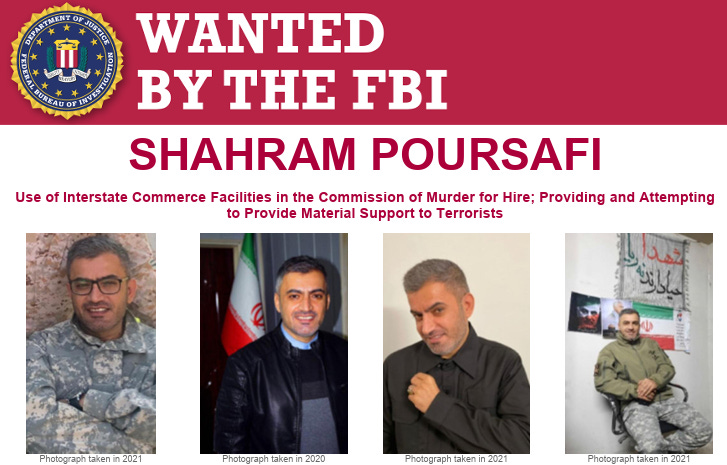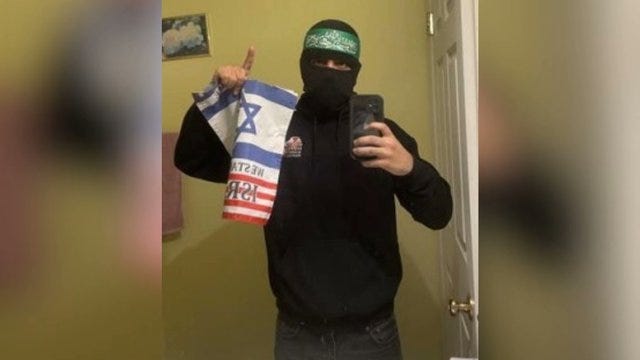Iran Warns U.S. It Could Activate "Sleeper Cells" in the Country: Report
The use of sleeper cells, assassination plots, and proxy groups like Hezbollah to target Americans remains a key part of Iran's strategy
A new report from NBC News has revealed that Iran sent a message to President Trump at the G7 summit, warning that if the U.S. ordered strikes on Iran’s nuclear facilities, Tehran could activate sleeper cells on U.S. soil to carry out terror attacks. This message is set against the backdrop of escalating tensions between Iran and Israel, which have intensified into an ongoing war. The use of sleeper cells, assassination plots, and proxy groups like Hezbollah to target Americans remains a key part of Iran's strategy, underscoring a heightened sense of urgency for U.S. counterterrorism efforts.
A History of Iranian Threats on U.S. Soil
The recent warning is part of a larger pattern of Iranian-directed operations targeting American citizens and interests, that have been going on for decades. In 1980, Iranian agents recruited David Belfield (aka Dawud Salahuddin), an American convert to Shiite Islam, to assassinate former Iranian diplomat Ali Akbar Tabatabai in Bethesda, Maryland. This was one of the first known Iranian-directed assassination attempts on U.S. soil, and such operations increased throughout the 1990s, with U.S. officials estimating Iran’s responsibility for 50 murders of political dissidents and others overseas since 1990.
More recently, in 2019, two Iranian agents—one a dual Iranian-American citizen, the other an Iranian living in California—pleaded guilty to surveilling U.S. nationals affiliated with the National Council of Resistance of Iran (NCRI). These agents attended NCRI rallies in New York and Washington, D.C., and conducted surveillance of Jewish institutions at the University of Chicago. As with earlier plots, these operations were directed by the IRGC, showing that such acts are not rogue actions but sanctioned by the Iranian government.

Notable Iranian Assassination Plots in the U.S.
In 2024, Iranian national Farhad Shakeri, who, along with local associates, plotted the murder of an Iranian dissident living in New York. Shakeri, believed to be acting under the direction of the Islamic Revolutionary Guard Corps (IRGC), was also tasked with planning the assassination of high-profile U.S. officials, including President-elect Donald Trump, in retaliation for the U.S. killing of IRGC commander Qasem Soleimani in 2020.

In another case, two Hezbollah operatives, Ali Kourani and Samer el Debek, were arrested for conducting surveillance for potential attacks in the U.S. Kourani, a member of the Iranian-controlled “910” unit within Hezbollah, explained how sleeper cells would be activated if tensions escalated between the U.S. and Iran. These cases demonstrate Iran’s readiness to use U.S.-based operatives to target American citizens, regardless of the broader political context.
Recently, Iranian national Shahram Poursafi was charged with attempting to assassinate former U.S. National Security Advisor John Bolton, likely in retaliation for the killing of Soleimani. Poursafi’s plot, which involved hiring a hitman in the U.S., further emphasizes Iran's use of its own agents to carry out attacks on U.S. soil.
Plots by Hamas-Linked Individuals in the U.S.
Since the start of the Israel-Hamas War in October 2023, individuals found to be self-proclaimed Hamas operatives or with links to Hamas have been involved in planning attacks within the U.S. As Hamas is also a proxy of the Iranian regime that coordinates with the IRGC, this represents another significant threat on U.S. soil.
In June 2025, Tarek Bazrouk, a New York-born U.S. citizen and self-proclaimed "Jew-hater," was arrested on federal hate crime charges following a series of violent and antisemitic actions primarily around Columbia University. According to federal prosecutors, Bazrouk was linked to Hamas' al-Qassam Brigades, a terrorist faction supported by Iran. Evidence from his phone revealed pro-Hamas and antisemitic propaganda, along with incriminating text messages from the group's spokesperson. Bazrouk is accused of assaulting Jewish individuals during pro-Palestinian demonstrations between April 2024 and January 2025. The discovery of weapons, a replica firearm, and $750,000 in cash further raised concerns about the scale of his operations. This case highlights the growing threat of Hamas operatives within the U.S., which is further amplified by Iran's backing of the group.
In another alarming case, Mohamad Hamad, a dual U.S.-Lebanese citizen and self-proclaimed Hamas operative, was indicted in April 2025 on charges including conspiracy, possession of destructive devices, and making false statements to obtain a top-secret security clearance. Hamad, who served in the Pennsylvania Air National Guard, allegedly expressed allegiance to Hamas and Hezbollah while in the U.S. military. He is accused of collaborating with two individuals to build and detonate pipe bombs and deface Jewish religious institutions in Pittsburgh. The investigation revealed that Hamad lied to federal officials during his security clearance process and had been sending messages glorifying terrorism.

Iranian Aggression in the West
Iran has long viewed external operations as a cost-effective way to protect its regime, especially as it faces internal unrest. These operations often go unnoticed until a major plot is foiled, as seen in the case of Poursafi and the assassination attempts. While such activities often result in diplomatic sanctions, they rarely lead to significant changes in Iran's behavior, particularly when it can rely on diplomatic negotiations to alleviate economic pressures.




These would have to be dealt with anyway.
Old Hamas friends Qatar now on the end of Iranians...bringing another Arab country into the US /Israel tent